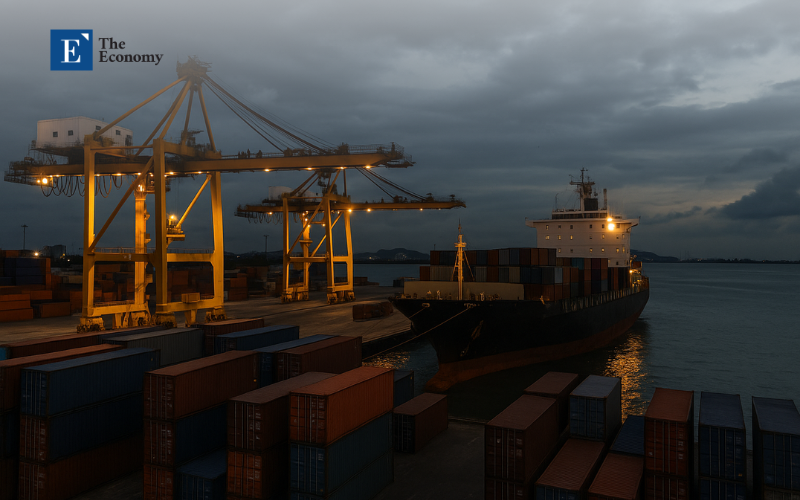
This article was independently developed by The Economy editorial team and draws on original analysis published by East Asia Forum. The content has been substantially rewritten, expanded, and reframed for broader context and relevance. All views expressed are solely those of the author and do not represent the official position of East Asia Forum or its contributors.
Read More
This article is based on ideas originally published by VoxEU – Centre for Economic Policy Research (CEPR) and has been independently rewritten and extended by The Economy editorial team. While inspired by the original analysis, the content presented here reflects a broader interpretation and additional commentary. The views expressed do not necessarily represent those of VoxEU or CEPR.
Read More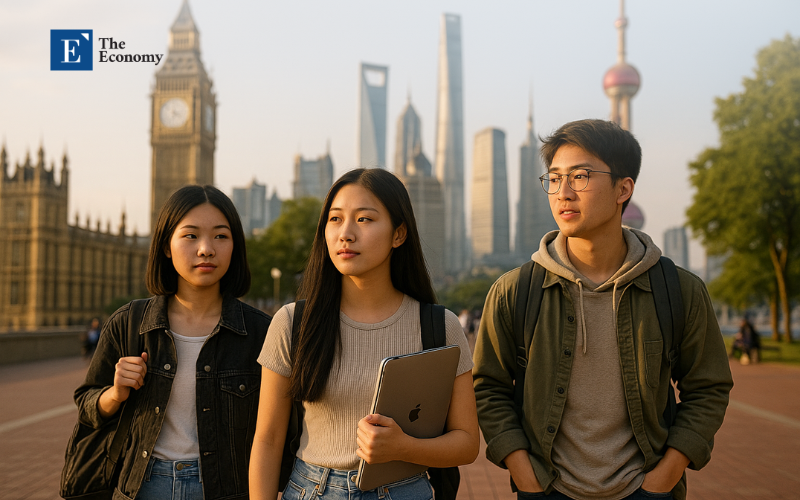
This article was independently developed by The Economy editorial team and draws on original analysis published by East Asia Forum. The content has been substantially rewritten, expanded, and reframed for broader context and relevance. All views expressed are solely those of the author and do not represent the official position of East Asia Forum or its contributors.
Read More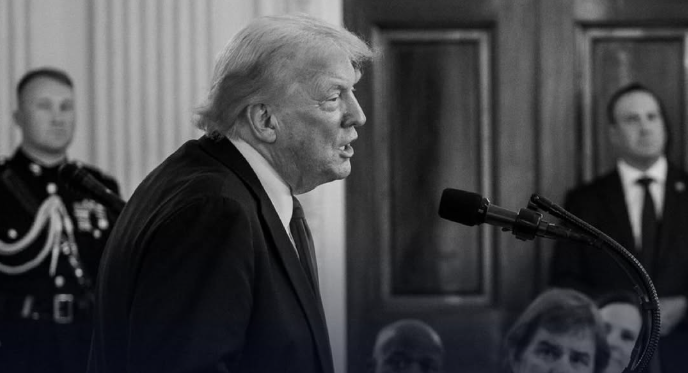
一方面要求盟友增加防卫开支,一方面征收关税,政策不一致 依据《芯片法》的补贴取消只对中国有利 频繁打压盟友,反而加深了中方的经济联系 美国总统唐纳德·特朗普 / 照片来源:白宫 美国总统特朗普在其外交政策中高举“美国优先”口号,正为中国扩展外交影响力创造机会。
Read More
This article was independently developed by The Economy editorial team and draws on original analysis published by East Asia Forum. The content has been substantially rewritten, expanded, and reframed for broader context and relevance. All views expressed are solely those of the author and do not represent the official position of East Asia Forum or its contributors.
Read More
This article is based on ideas originally published by VoxEU – Centre for Economic Policy Research (CEPR) and has been independently rewritten and extended by The Economy editorial team. While inspired by the original analysis, the content presented here reflects a broader interpretation and additional commentary. The views expressed do not necessarily represent those of VoxEU or CEPR.
Read More
This article was independently developed by The Economy editorial team and draws on original analysis published by East Asia Forum. The content has been substantially rewritten, expanded, and reframed for broader context and relevance. All views expressed are solely those of the author and do not represent the official position of East Asia Forum or its contributors.
Read More
This article was independently developed by The Economy editorial team and draws on original analysis published by East Asia Forum. The content has been substantially rewritten, expanded, and reframed for broader context and relevance. All views expressed are solely those of the author and do not represent the official position of East Asia Forum or its contributors.
Read More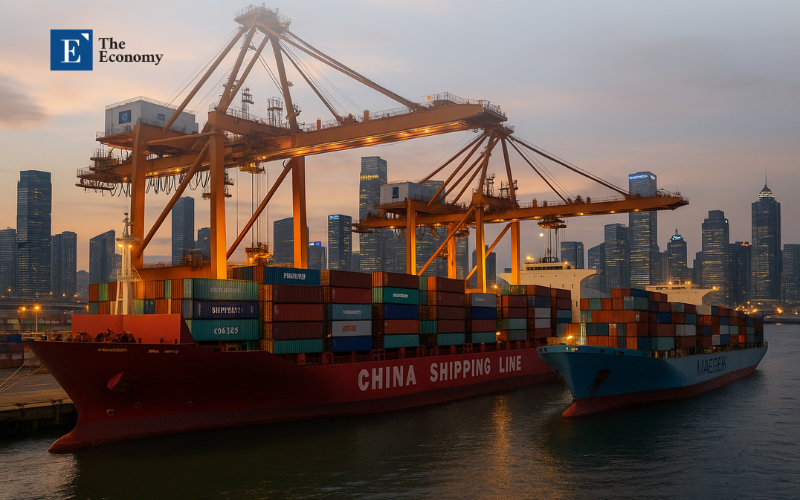
This article was independently developed by The Economy editorial team and draws on original analysis published by East Asia Forum. The content has been substantially rewritten, expanded, and reframed for broader context and relevance. All views expressed are solely those of the author and do not represent the official position of East Asia Forum or its contributors.
Read More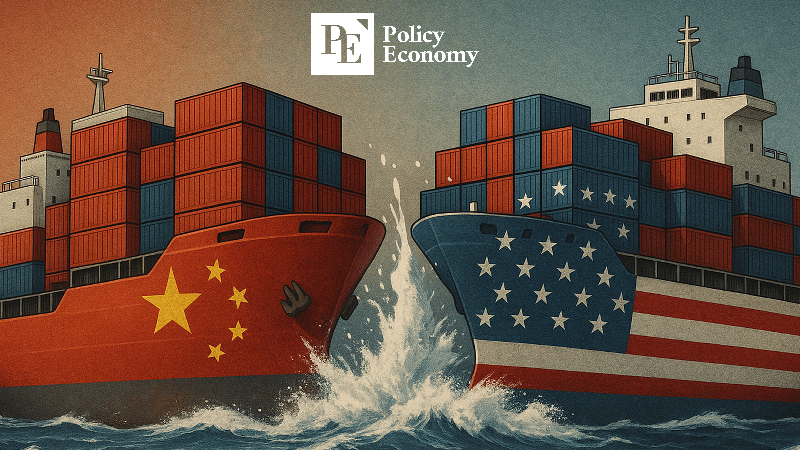
美国从泰国和墨西哥进口的锑超过过去三年总和 中国出口量反而激增,“转运”迹象明显 中国将稀土作为外交筹码,国内企业承压严重 中国掌控着对高科技产业至关重要的矿物供应,尽管已经打出出口禁令的“王牌”,但美国通过泰国、墨西哥等第三国绕道进口的迹象日益明显。在中美科技主导权争夺战日趋激烈之际,有分析指出中国的关键矿物出口管制措施实际上正在失效。
Read More
This article was independently developed by The Economy editorial team and draws on original analysis published by East Asia Forum. The content has been substantially rewritten, expanded, and reframed for broader context and relevance. All views expressed are solely those of the author and do not represent the official position of East Asia Forum or its contributors.
Read More
This article is based on ideas originally published by VoxEU – Centre for Economic Policy Research (CEPR) and has been independently rewritten and extended by The Economy editorial team. While inspired by the original analysis, the content presented here reflects a broader interpretation and additional commentary. The views expressed do not necessarily represent those of VoxEU or CEPR.
Read More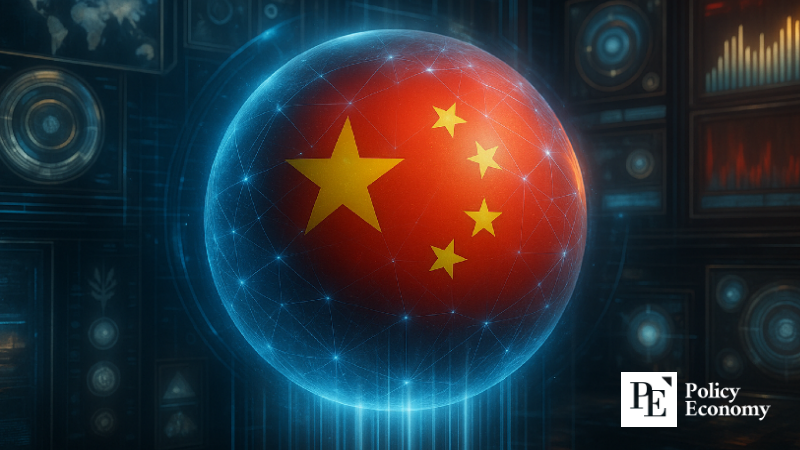
中因应美中对抗,打造内陆经济引擎 加大对贵州航空及数字经济投资 构建经济安全新增长动能 在应对美中贸易战的背景下,中国正将内陆山区贵州省培育为“战略后方”。曾是最贫困地区之一的贵州,如今正跃升为中国经济转型的前沿。中国政府的目标是,以贵州等中西部内陆省份为基础,构建更具韧性的产业结构,扩大内需市场,增强抵御外部冲击的能力。
Read More
This article was independently developed by The Economy editorial team and draws on original analysis published by East Asia Forum. The content has been substantially rewritten, expanded, and reframed for broader context and relevance. All views expressed are solely those of the author and do not represent the official position of East Asia Forum or its contributors.
Read More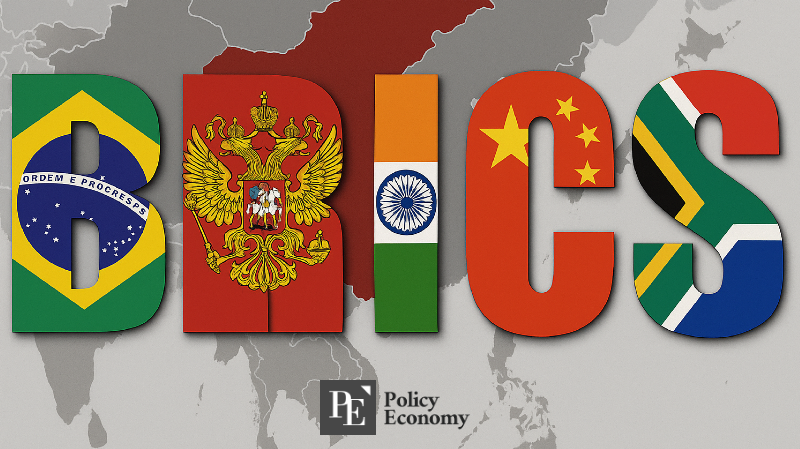
6日至7日,金砖国家峰会在巴西举行 批评美国关税政策与对伊朗核设施打击 特朗普威胁:“无一例外地征税” 美国总统唐纳德·特朗普宣布,将对所有赞同金砖国家(BRICS)反美政策的国家征收10%的额外关税。正值美国与多国就关税进行谈判、加剧全球贸易不确定性之际,特朗普此番言论被解读为针对前一日在巴西开幕的金砖国家峰会。
Read More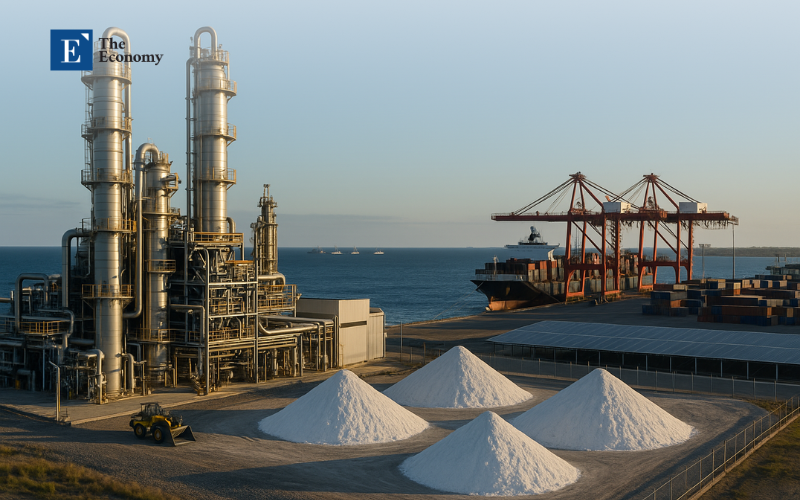
This article was independently developed by The Economy editorial team and draws on original analysis published by East Asia Forum. The content has been substantially rewritten, expanded, and reframed for broader context and relevance. All views expressed are solely those of the author and do not represent the official position of East Asia Forum or its contributors.
Read More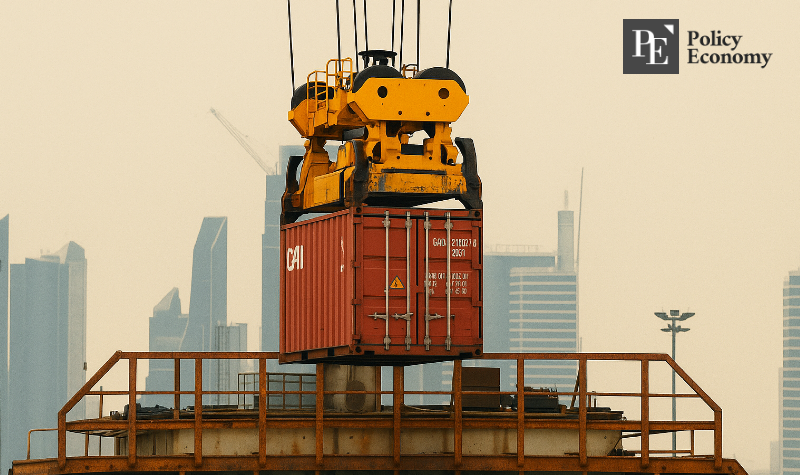
5月对美直接出口锐减43%,整体出口增长4.8% 因经由越南、东盟、印度的再出口增加 美国在与越南的贸易谈判中瞄准中国,对转口产品征收双倍关税 在中国对美出口大幅下滑的同时,对东南亚国家联盟(ASEAN)和欧盟的出口显著增加,特别是经由越南和印度尼西亚的间接出口规模创下历史新高。中国减少对美直接出口,通过第三国再出口及扩大对欧洲和新兴国家市场的出口路径,促成出口多元化。这一趋势显示出美国总统唐纳德·特朗普的关税政策正从根本上改变中国的贸易模式。
Read More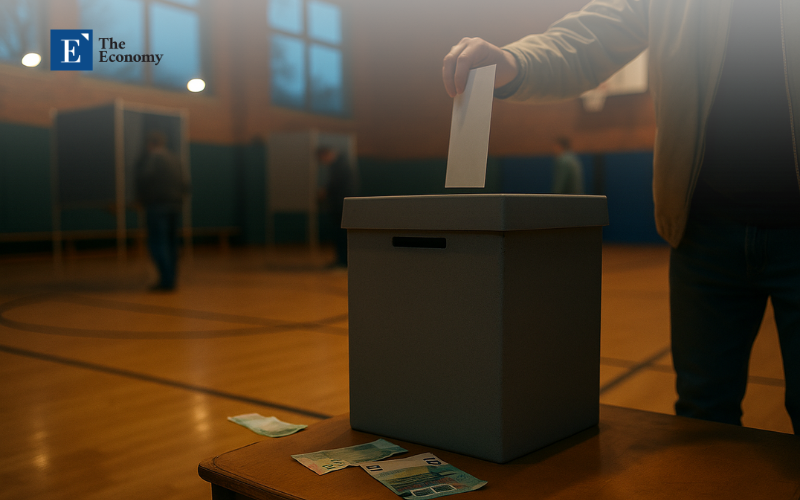
This article is based on ideas originally published by VoxEU – Centre for Economic Policy Research (CEPR) and has been independently rewritten and extended by The Economy editorial team. While inspired by the original analysis, the content presented here reflects a broader interpretation and additional commentary. The views expressed do not necessarily represent those of VoxEU or CEPR.
Read More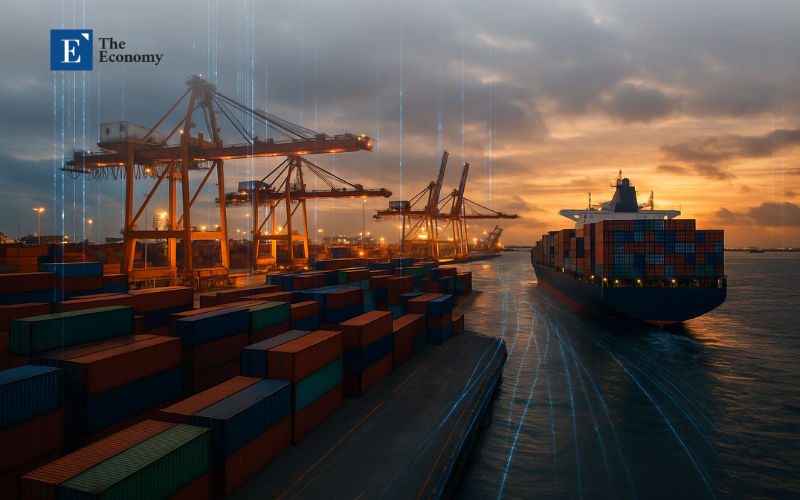
This article was independently developed by The Economy editorial team and draws on original analysis published by East Asia Forum. The content has been substantially rewritten, expanded, and reframed for broader context and relevance. All views expressed are solely those of the author and do not represent the official position of East Asia Forum or its contributors.
Read More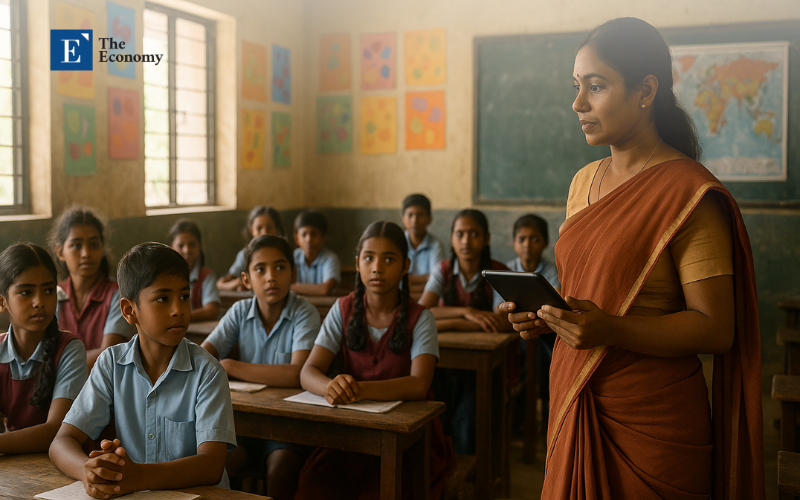
This article was independently developed by The Economy editorial team and draws on original analysis published by East Asia Forum. The content has been substantially rewritten, expanded, and reframed to provide a broader context and greater relevance. All views expressed are solely those of the author and do not represent the official position of East Asia Forum or its contributors.
Read More










